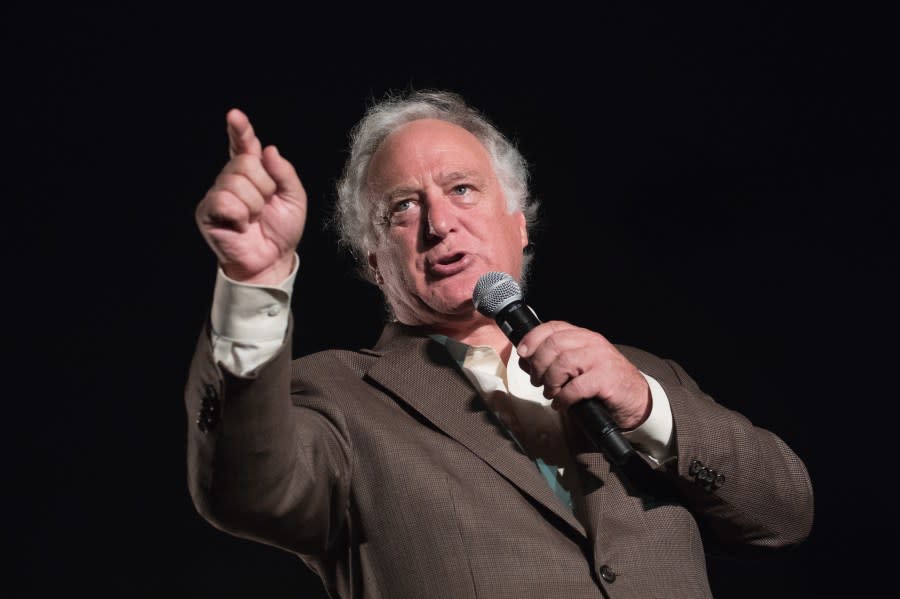Austin mayor expresses concerns over wave of self-driving cars, rail opposition

Autonomous car companies need to do a better job of working with cities to avoid costly failures, Austin Mayor Kirk Watson said Monday.
Watson added that moves last year by the state of Texas to preempt local control had hurt the city’s ability to guarantee safety.
Last week, Waymo, an affiliate of Google parent company Alphabet, began field testing its driverless taxis in Austin — the first such initiative since the controversial failure of a GM-backed effort last year.
That company, Cruise, suspended its operations in the city after a wave of complaints and pedestrian injuries led to scrutiny from both local emergency officials and federal regulators.
“I’m all for profit margins and stuff, but ultimately the public good has to play a role in this, and it shouldn’t be sacrificed, and it shouldn’t be secondary to the profit of the private entity,” Watson said.
Watson was speaking with Uber CEO Dara Khosrowshahi at South by Southwest (SXSW), the city’s signature technology and culture expo.
“In my first six months, it felt like every week, there was some autonomous vehicle group that wanted to come in and meet with me to tell me how they’re going to change the world — right here, in River City,” Watson said.
But “even with all the promise,” Watson said, Austin ran into problems.
“Safety becomes the number one area we deal with,” Watson said. Autonomous vehicles would stop in bike lanes or rights-of-way.
Emergency vehicles “would come up behind the autonomous vehicle and with lights and sirens and nobody responded because — well, by definition, there was nobody there.”
Watson said he ”was impressed with the safety of the AV,” but is unsure whether to incentivize AVs over professional drivers.
Two historic shadows hung over Watson’s conversation with Khosrowshahi, whose company’s acrimonious 2016 divorce from Austin helped kick off the legislature’s decade-long move toward clipping cities’ wings.
Watson referred to the city’s “complicated” history — in 2015, the city council tried to make Uber drivers take criminal background checks.
In response Uber forced a referendum to try and make Austin withdraw the measures, aproposal that the company lost.
After that failure Uber and Lyft left Austin before lobbying the state legislature to pass legislation stripping Austin of the ability to set limits on rideshare companies.
“I was in the Texas Senate when that went down, and I voted against Uber,” Watson told Khosrowshahi. “Just straight up.”
Khosrowshahi defended the measure, arguing that because Uber operates in metro areas that sprawl across many cities, “we need to regulate directly because our state.”
But “in hindsight too, we could have handled it differently. I think that was fine. The communication that we have with regulators, with our local constituents wasn’t as strong as it could have been.”
Khosrowshahi said Uber’s autonomous vendors are setting a target to “much better” than a human driver.
Everyone agrees to “how good you have to be to get a human driver’s license, but how good you have to be to get a robot driver’s license — that’s still up for debate.”
Watson said that companies that want to disrupt a city’s life have to pay attention to that city’s values.
“Preemption always scares me — having legislature be an appellate court for decisions at the local level,” he said.
“My hope is always that the collaboration and the communication will lead to a better result in the cities that need the service.”
Where that comes to autonomous vehicles, Watson said that the state’s preemption laws last year had in many ways tied the city’s hands, but advised autonomous vehicle companies to work with the city voluntarily.
“My answer is not to whine about [preemption] — well, except how I just did — but to say to companies: don’t worry about preemption, but come help answer the questions of what we need to make this work and make it easier for companies themselves.”
The second shadow doesn’t concern Uber but the lawsuits against Project Connect, Austin’s signature $7 billion rail-and-public transit expansion plan.
That project is under legal attack by businesses in the path of the expansion, and Attorney General Ken Paxton (R) has argued that the city can’t use taxes for maintenance and operation to pay down project debt, a serious wrench in the city’s ability to fund the project.
Watson said that mass transit faces serious headwinds in Texas — he joked that “rail is a four letter word” in the state — but said that preserving Project Connect was key to Austin’s “ability to protect the environment and to keeping people able to afford to live here.”
“People aren’t gonna go where it’s ugly — where the air and water aren’t clean, and you can’t get out on a nice hike and bike trail,” he said.
“It’s becoming very clear that transportation is the hub of a multi-spoke wheel. If you do transportation right, you do environment right, and you do affordability right.”
For the latest news, weather, sports, and streaming video, head to The Hill.


